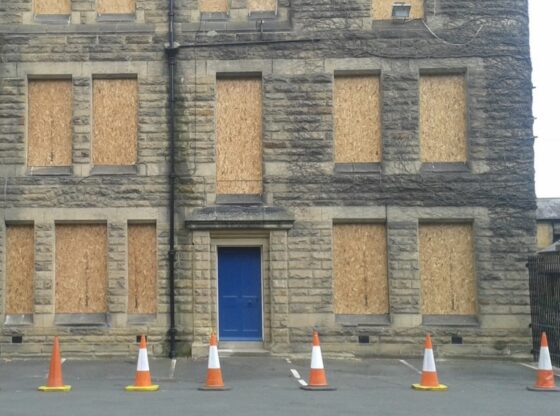How to Evict Trespassers
It is important that those who own property and land are aware of the eviction process should their rights over their land be infringed by trespassers, whether the land is open land, a commercial, or residential premises.
Trespassers are commonly referred to as ‘squatters’, but the proper legal term for squatter is ‘trespasser’.
Is trespass a criminal offence?
In some circumstances, yes, trespassing is a criminal offence. Section 144 of the Legal Aid, Sentencing and Punishment of Offenders Act 2012 made trespassing in a residential property a criminal offence if the following criteria is met:
- The trespasser(s) entered the property as a trespasser,
- The person(s) know or ought to know that they are a trespasser, and
- The trespassers intend to live in the property for any period.
The consequence of committing such offence is that the police may arrest the trespassers and if convicted of the offence of trespassing, the trespasser could face imprisonment of up to 51 weeks and or a fine not exceeding £5,000.00.
However, the power of the police to arrest a person trespassing upon residential property is discretionary, the police will need to be certain that the person
is a trespasser.
Can the police remove trespassers?
Under section 61 of the Criminal Justice and Public Order Act 1994 the police have the power to direct trespassers to leave land (but not buildings) where they reasonably believe that the trespassers have entered the land for the purpose of residing on it, and reasonable steps have been taken by the occupier of the land to ask the trespassers to leave; and:
- any of the trespassers have caused damage to the land or to property on the land; or
- any of the trespassers have used abusive or threatening behaviour towards the occupier or his family or any employee or agent of the occupier; or
- the trespassers have between them six or more vehicles on the land.
The above power that the police have is also discretionary, in which the police are not obligated to remove trespassers from land, even if the above criteria are met.
Police have a separate power under s62A of the Criminal Justice and Public Order Act 1994 to direct trespassers to leave land where they believe there is a suitable alternative site for the trespassers to pitch.
How do I remove trespassers?
If the police are unable to remove the trespassers from the land or property, it is possible to take action through the civil courts.
In many cases, the names of the trespassers will be unknown, and therefore proceedings must be issued against ‘Persons Unknown’. The claim should always be started in the county court, except for exceptional circumstances where it may be appropriate to commence the proceedings in the High Court.
This process is governed by Part 55 of the Civil Procedure Rules. The property can make a claim for possession in order to evict the trespassers.
In some cases, it is appropriate to apply for an Interim Possession Order to remove trespassers whilst waiting for the final hearing. The landowner must make the application within 28 days of when he first knew or ought to have known that the trespassers had entered the property.
Once proceedings have been issued in the court they must be served on the trespassers.
There are strict rules governing how the claim should be served and rules about when service must take place. In most cases, it is appropriate to use a process server to personally serve the trespasser with the case papers and also attach a further copy of the case papers to entrances of the property or land.
For open land, the cases papers should be attached to a stake which is placed in the ground if this is possible and a further set of case papers being attached to the entrances of the open land.
Claims for possession of property can fail based on documents not being correctly served upon the Defendant, therefore it is important to ensure the case papers are correctly served in accordance with the Civil Procedure Rules.
There is usually a court hearing at which the Judge will make the possession order which must then be served on the trespassers.
What is an interim possession order?
An interim possession order can only be obtained in relation to a property and not open land.
the interim possession order procedure is only available to landlords who start proceedings within 28 days of first knowing that the squatters are in occupation, or 28 days from when s/he should reasonably have known of the occupation.
The purpose of an interim possession order is that it provides property owners with a much faster route to gaining a possession order. An interim possession order is an order made before the court has properly considered the property owners claim. Essentially, the court will be making a temporary possession order in the meantime until the court makes a final decision in the case.
What happens after I have obtained an Interim Possession Order?
If the trespassers do not vacate the property within 24 hours after receiving an Interim Possession Order against them then they are committing an offence under section 76 of the Criminal Justice and Public Order Act 1994. The police can be contacted regarding this offence and the police may arrest the trespassers. However, if this happens, it is still appropriate to continue the claim and obtain a final possession order.
When the Interim Possession Order is made, the court will also set a hearing date for the hearing at which the court will decide whether the make a final outright possession order.
If the trespassers do not voluntarily vacate following service of the Possession Order, you will need to obtain a warrant or writ for possession from the court which will then enable the county court or high court enforcement officer to force the trespassers to leave.
What if the trespassers return the land or there is a threat of trespass to land?
Where the trespassers have already been evicted, but return to the land or property it would be appropriate to consider applying to the court for an injunction against the trespassers. An injunction can also be applied for where there is a real threat of trespass to land. An example of this would be where a public event is organised on private land, and before the event takes place, the landowner applies for an injunction to prohibit the potential trespassers from entering the land.
In the case of Secretary of State for Environment, Food and Rural Affaris v Meier [2009] UKSC 11, the court recognised that an injunction could be a useful tool to accompany a quick possession order. The possession order would remove the trespassers and the injunction would prevent further trespass.
In the above case, Lord Neuberger, who has a background in property law, stated that where trespass is threatened, and presently being committed and the injunction will be appropriate unless there are good reasons to the contrary.
A party who deliberately disobeys an injunction will be in contempt of court. Similarly, a third party with notice of the injunction, which assists a party to disobey it, may also be in contempt. The injunction will usually contain a ‘penal notice’, which means that failure to obey its terms could result in court proceedings leading to imprisonment for contempt.
Proceedings for contempt of court are the only remedy available for breach of an injunction. Contempt of court does not of itself allow the other party to seek damages for any loss arising from breach of the injunction, although there may be a right to damages if liability is established in the main proceedings.
This means that an injunction against trespassers is more of a preventative measure and cannot be enforced the way a possession order can.
If you experience trespassers on your land it is important that you:
- Politely ask the trespassers to leave as soon as you become aware of them, if it appears safe to do so
- Contact the local police as they might be able to remove the trespassers
- If the police attend, try to be there at the same time so you have a good idea of what is happening and are a witness to the police attendance
- Do not agree with the trespassers that they can stay for a certain amount of time as this may affect your right to remove them at a later date
- Take note of any damage that you believe the trespassers may have caused to your property or land
- Seek legal advice as soon as you are aware of the trespassers
- If you need to go through the court process to evict the trespassers, obtain legal advice as soon as possible to ensure that the correct procedure is followed.











